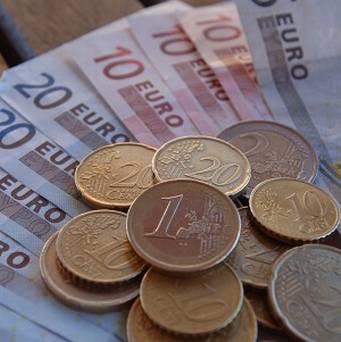Catalan standoff to hit Spain economy, whoever wins

By Bloomberg
Spanish Prime Minister Mariano Rajoy is battling to keep his country together, facing down Catalan separatists. Even if he wins, the standoff risks weakening the economy that the two sides are fighting over.
Catalan President Artur Mas, backed by about two-thirds of the region's lawmakers, is defying orders from Spain's highest court and pressing ahead with a vote on independence on Nov. 9. The wrangling last week pushed the gap between Spanish and German bond yields to the widest since Scotland voted to remain in the U.K., while support for Rajoy's People's Party is tumbling, according to a poll published by El Pais yesterday.
"Investors are pricing the risk of political instability in Catalonia," said Francesco Marani, a fixed-income trader at Auriga Global Investors SA in Madrid, who trades government and regional debt. "The independence issue has already been hurting the Spanish economy, and it's not over."
Spain's economy is losing momentum amid a slowdown for its European trading partners. Uncertainty over the future of Catalonia, whose contribution to the Spanish economy is twice that of Scotland's to the U.K., risks undermining investment as well as pushing up borrowing costs and distracting politicians from tackling the 24 percent jobless rate.
Higher Yields
"Boosting growth requires an ambitious policy mix as political tensions over Catalonia may last for months, maybe till the next general elections, weighing on confidence and investment," said Frederik Ducrozet, an economist at Credit Agricole CIB in Paris. Rajoy's four-year mandate finishes at the end of next year.
The extra yield investors demand to lend to Spain for 10 years instead of Germany widened by three basis points to 121 basis points at 10:54 a.m. in Madrid today. That compares with 111 basis points on Sept. 5, which was the tightest since May 2010. Analysts at UBS AG forecast the spread may widen to as much as 170 basis points over the coming months.
"Now is where the uncertainty begins," Justin Knight, a London-based European rates strategist at UBS said in a telephone interview after the Constitutional Court declared the vote illegal last week.
Despite that ruling, a poll commissioned by the Catalan regional government and published on Oct. 3 showed 71 percent of Catalans want the independence vote to be held next month.
Mayors' Support
As protesters keep up the pressure on Mas, a poll yesterday showed that his strongest ally in the regional parliament, Esquerra Republicana, would win a regional election if one were held now. Esquerra has a longer track record of fighting for independence and has been pushing Mas to take a harder line against the Spanish courts.
The day before, about 800 mayors, representing almost 90 percent of Catalonia's towns, met Mas in Barcelona to show their support for his plan to go ahead with the ballot.
Catalonia, which borders France, has its own language and the semi-autonomous government controls education, health care and a regional police force. As early as the 13th century, Catalonia had its own parliament during an alliance with the Aragonese, a confederation that expanded to rule over Mediterranean regions including Sardinia and Corsica in the 14th century. Following a revival based on commerce in the 19th century, Barcelona today is home to some of the nation's largest companies, including CaixaBank and Gas Natural SDG SA.
'Uncharted Territory'
"Noise from Catalonia has the potential to wipe out" the gains Spanish bonds have made on the back of Rajoy's measures to overhaul the economy, Marco Brancolini, a strategist at Royal Bank of Scotland, wrote in a note on Sept. 30. He recommended Italian debt rather than Spanish bonds as Catalonia enters "uncharted territory."
Secession by Catalonia would cost Spain 20 percent of its economic output and trigger a row about how to carve up the sovereign's 836 billion euros ($1.1 trillion) of debt. Catalan banks would lose European Central Bank access, Bank of Spain Governor Luis Maria Linde said last week.
The extra yield investors get for holding Catalonia's 2020 bonds rather than comparable Spanish debt was 148 basis points today compared with 101 basis points in July, according to data compiled by Bloomberg. An increase in that gap signals a deterioration of investors' risk perception.
Starting Dialogue
The political standoff is complicating Rajoy's work on the economy, while a slowdown in the euro region prompted Economy Minister Luis de Guindos to give up on a 1.5 percent growth estimate for this year. The government now expects a 1.3 percent expansion for the euro region's fourth-largest economy, and sees unemployment remaining close to 25 percent before falling to 23 percent in 2015. Linde also said last week the economy will grow at a more measured pace in the fourth quarter.
Responding to the tension in Barcelona this weekend, Rajoy told a gathering of his party's lawmakers on Oct. 4 he is willing to start a "dialogue." One way out of the impasse may be to grant Catalonia greater control over its taxes, just as U.K. leaders offered Scotland more power in the final weeks of the Scottish campaign.
Still, as Rajoy is struggling to rein in a budget gap that was 7 percent of GDP last year in the sixth annual deficit, he hasn't much to offer.
"While Spain has made strong progress in putting its public finances on better footing, there is still very limited room for fiscal maneuver," said Timo del Carpio, an economist at RBC Capital Markets in London. "Frictions with the central government are likely to persist."
Here we are to serve you with news right now. It does not cost much, but worth your attention.
Choose to support open, independent, quality journalism and subscribe on a monthly basis.
By subscribing to our online newspaper, you can have full digital access to all news, analysis, and much more.
You can also follow AzerNEWS on Twitter @AzerNewsAz or Facebook @AzerNewsNewspaper
Thank you!
